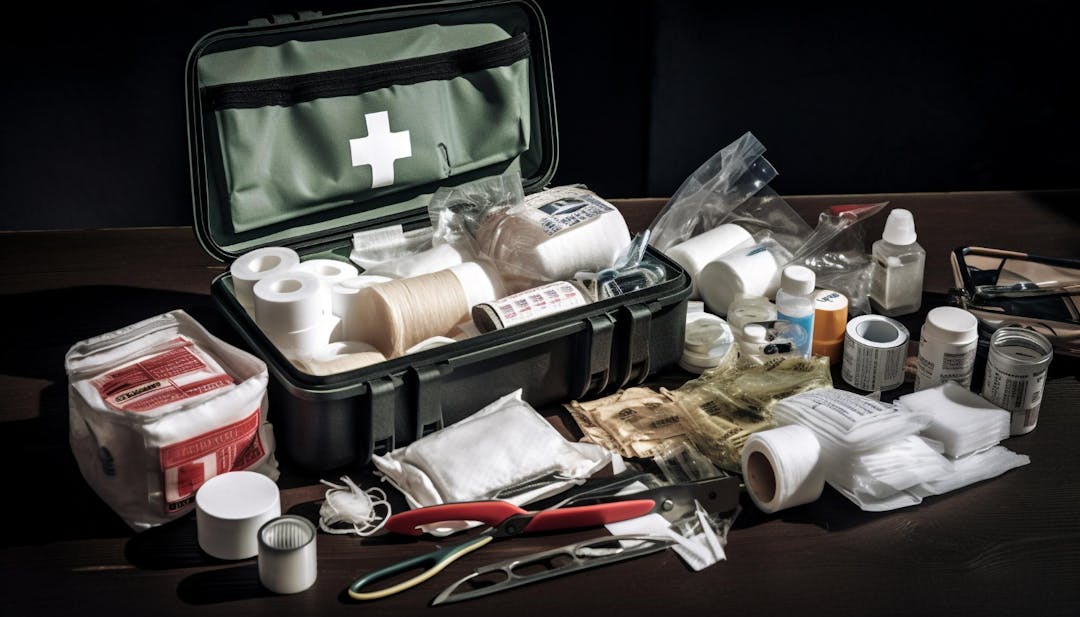
News
Emergency Preparedness More Critical Now Than Ever
January 27, 2022
FP2030 in the Media
Previous

Despite pandemic and huma...
Next

News & Updates from FP203...
Source:FP2030
Topics:
COVID-19 & Family Planning
Emergency Preparedness & Response
By Sofia Heffernan, Associate, Global Initiatives, FP2030
Over the past several years, and specifically during the COVID-19 pandemic, it is an understatement to say there have been shifts in our society. The pandemic has magnified the effects of other ongoing crises as climate change, natural disasters, war, and famine have had outsized impacts on supply chains and already strained health systems. Advocates have increased their calls to action around how to continue family planning services in crisis settings and how to reach people who have been forced to leave their homes due to the effects of climate change.
Bless-me Ajani, a member of the International Youth Alliance for Family Planning and FP2030 focal point from Nigeria, stated that “the pandemic and climate change campaigns have put a spotlight on the need to prioritize SRHR [sexual and reproductive health and rights] in crisis situations.” Furthermore, there has been an increased interest of global stakeholders in how to better prepare for crises: How do we adequately prepare for disasters so health systems do not fall apart during tough times? How do we strengthen service delivery structures so they can continue to function during a pandemic? These questions continue to bounce around the heads of advocates, health providers, and FP2030 colleagues and partners. However, as Bless-me mentioned, there has been plenty of talk around family planning continuation during crisis settings, “but the actions are not matching up.”
At FP2030, we’ve advocated for the importance of EPR and resilience in both the country commitments and the nongovernmental commitments we have received over the past several years. Prior to 2017, only Liberia explicitly mentioned EPR in its FP2020 commitment. Between 2017 and 2020, 23% of the 47 country commitments incorporated EPR, further exemplifying that civil society organizations, advocates, and young people were pushing governments to prepare for humanitarian crises and to prioritize family planning and sexual and reproductive health and rights.
With the launch of FP2030 in 2021, we are delighted to note that as of the end of December 68% (15 out of 22) of the first draft or final commitments include EPR strategies. This tremendous increase was made possible by the concerted effort of FP2030 partners: FP2030 focal points including Ministries of Health, donors, civil society members, and youth-led organizations, in collaboration with IAWG and the Ouagadougou Partnership. FP2030 partners continue to work with governments to include strong EPR commitments within their country commitment and will keep doing so as FP2030 moves into the global support network structure.
Sadio Diarra, Senior Specialist at the United Nations Population Fund (UNFPA) and an FP2030 focal point from Mali, indicated that Mali’s strong commitment to EPR came from an increased focus and interest from stakeholders due to the pandemic. She said it is now time “to improve coordination of interventions, action research and documentation of good practices.” It is time to put words into action.
It is important for this to happen so that the focus brought on by the pandemic continues and creates sustainable preparedness. Unfortunately, continued focus and sustainable change haven’t happened in regard to climate change. Sadio elaborates: “Research and sharing of reliable data on the links between climate change and SRHR needs to be greatly expanded, especially in sub-Saharan African countries” to encourage more buy-in from governments and local advocates.
FP2030, along with other partners, has heard the need for increased data and research on the impact of crisis settings on family planning and has worked to develop materials to help countries prepare for crisis scenarios, including climate change. To complement the 2018 edition of the Inter-Agency Field Manual on Reproductive Health in Crisis Situations, FP2030 worked with partners such as IPPF, JSI, Women’s Refugee Commission, and UNFPA to develop a suite of new emergency preparedness tools that can be used before crisis strikes to strengthen the existing health system’s ability to deliver quality sexual and reproductive health care before, during, and after a crisis, thus building system, community, and individual resilience needed in these challenging times.
We asked our partners what their key recommendation for making a case for SRHR in crisis settings would be. Bless-me noted that it is imperative for governments and civil society organizations “to ensure that these reproductive health services are provided as part of the Minimum Initial Service Package for SRH in crisis response in order to prevent excess maternal morbidity and mortality.” Sadio pointed to the need for “communities to be involved in identifying alerts and responding quickly to foster their resilience” as a key form of preparedness. As FP2030 transitions to a global support network, we are dedicated to continuing to work with our partners to identify strategies to prepare for crises, and in the meantime we are grateful for the strong EPR commitments that we have received so far.








